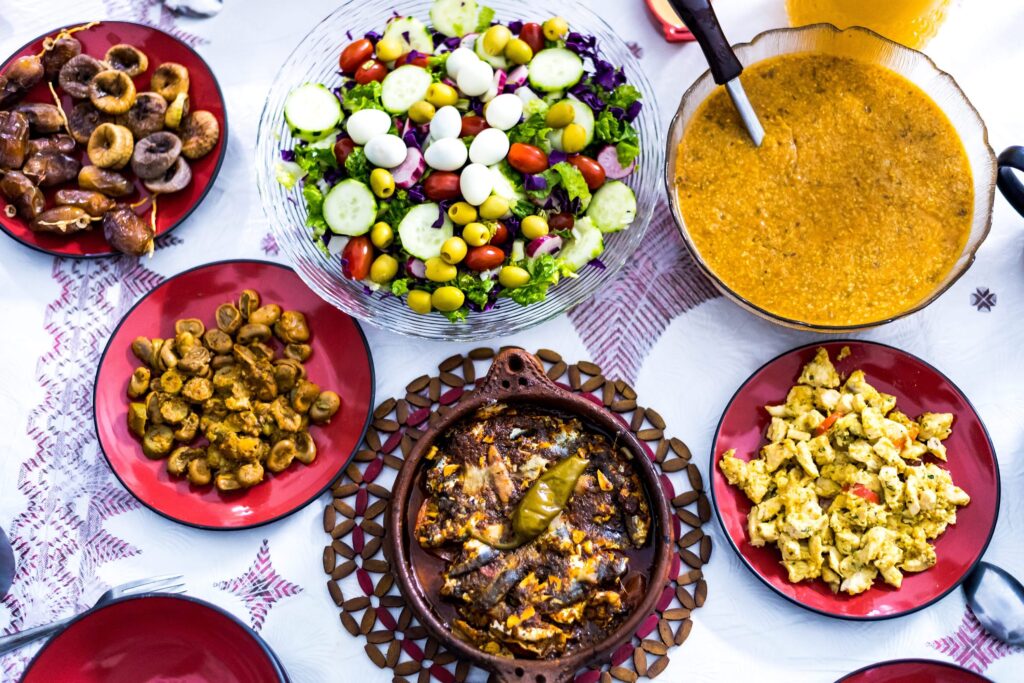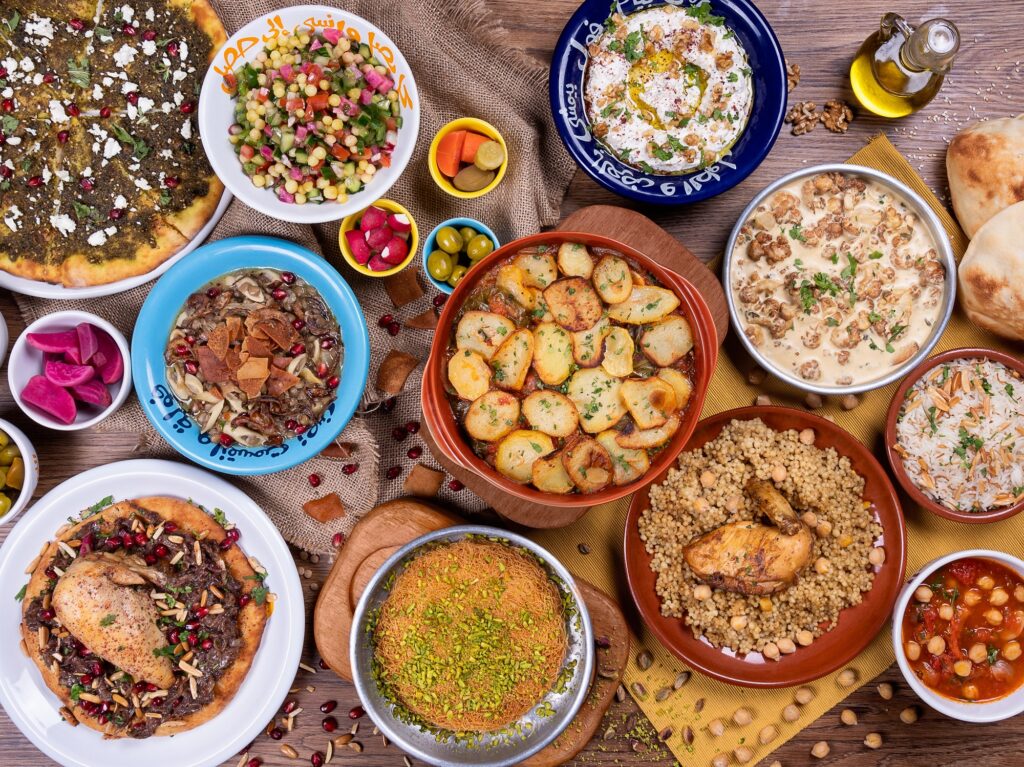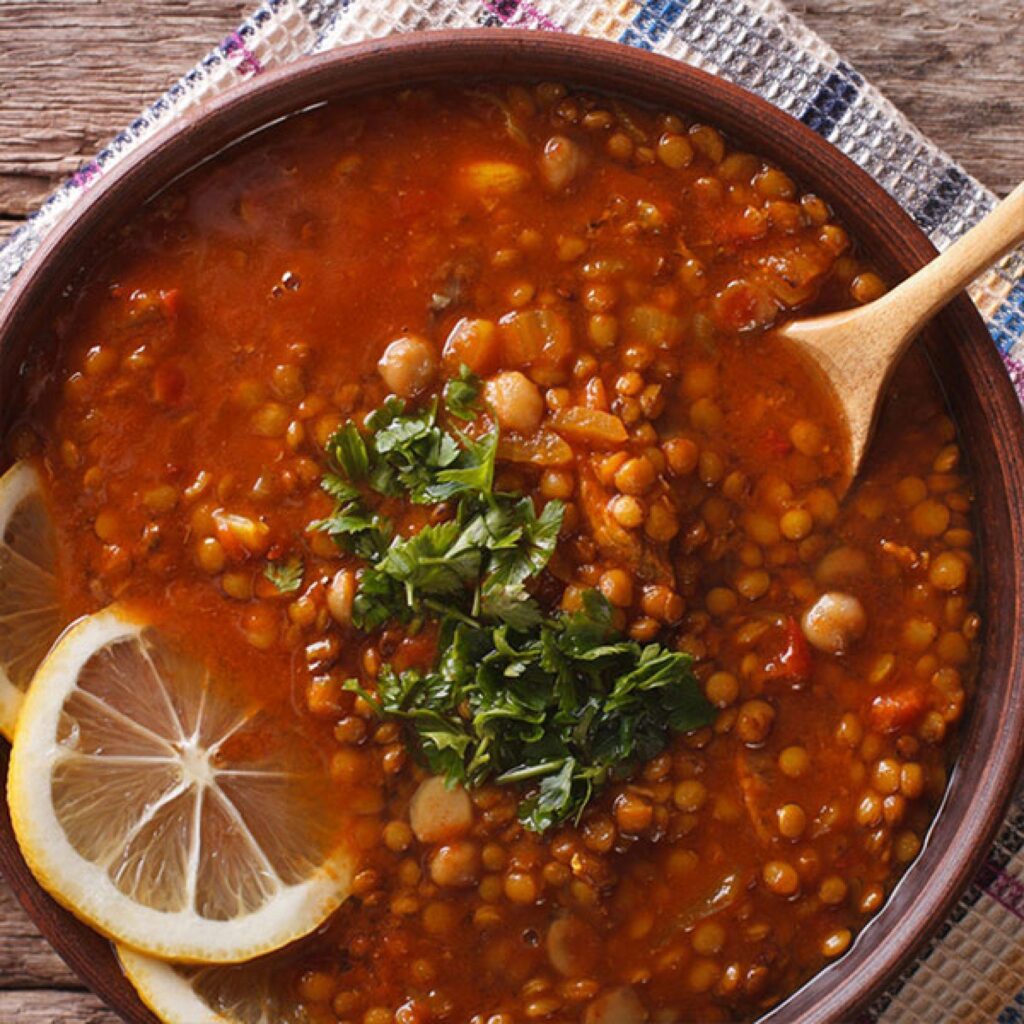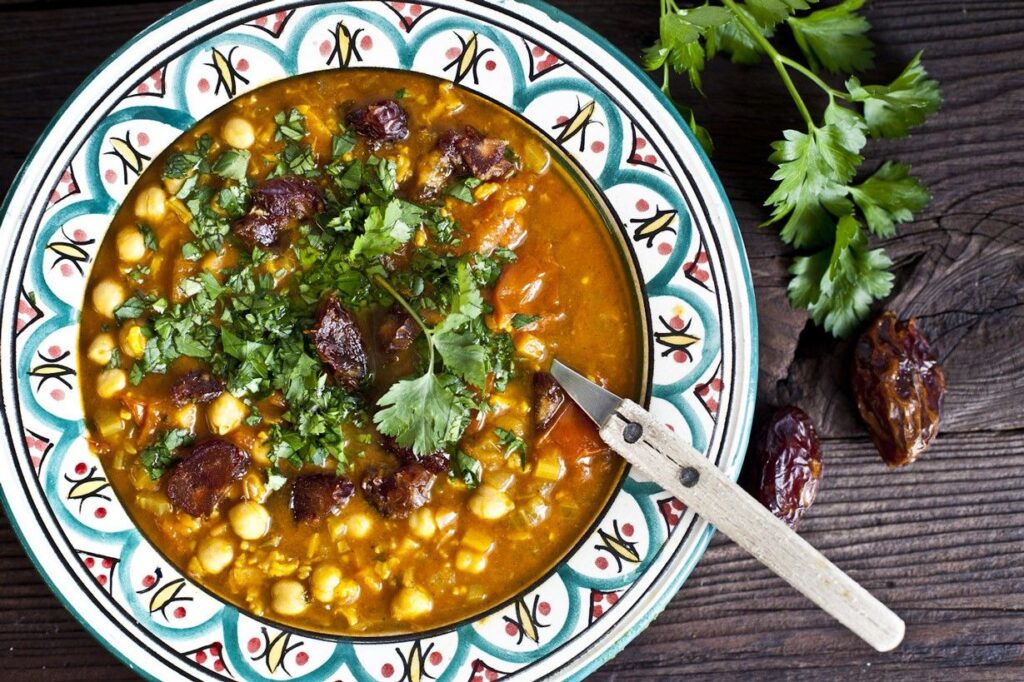Moroccan food is an experience for all the senses. It’s a combination of vibrant colors, complex flavors, and rich aromas. Each bite feels like it tells a tale. One question that often comes up for those who are new to this fascinating food culture is: Does Moroccan food have a spicy taste?
Understanding the differences between flavor and heat is key. Moroccan cuisine is full of flavor thanks to the aromatic spices it uses, but rarely too spicy. Discover the world of Moroccan food, its spice combinations and regional variations.

Moroccan Flavor Magic: The Hidden Secret
Moroccan cuisine is characterized by its careful use of spices. It’s important to note that the goal is not to burn your taste buds. Moroccan food is about harmony, a balance between sweet and savory, aromatic flavors. Here are some of the spices used to give Moroccan cuisine its distinctive personality.
- Cumin : Warm and earthy, cumin is a mainstay in Moroccan stews and tagines.
- Curcumin Adds an orange hue to food and a subtle bitterness.
- ginger : Adds mild heat to dishes, such as chicken tagines.
- Moroccan Cinnamon is a staple in both sweet and savory dishes.
- Safran : A prized Moroccan “red gold”, used to create an elegant floral scent.
- Paprika : Adds a smoky sweet taste, commonly used in marinades or spice rubs.
- Ras el Hanout A spice mixture with up to 30 different ingredients that is curated and crafted to perfection.
Spice routes, Berber culture and Arab traditions have all influenced the origins of many spices.
Understanding the difference between “Spicy”, “Flavorful”, and “Potent”
Many people think “spicy” food is characterized by hot chili peppers. They immediately reach for water. Moroccan cuisine is more flavorful when it comes to “spicy”. Spice combinations are used to create an intense flavor, not a savage heat.
Moroccan cuisine is not necessarily a hot food. There’s plenty of heat in Moroccan food if you look for it!
Moroccan dishes without the heat

You won’t be disappointed to learn that the majority of Moroccan dishes are perfect for a wide range of tastes. Spice is used in these dishes without overpowering your palate.
- Preserved Olives and Lemons in Chicken Tagine A delicious dish, where the preserved lemons’ briny flavor elevates chicken to perfection. The mild spices of saffron or ginger enhance the taste.
- Almonds and Prunes This lamb with dried fruit is a combination of sweet, aromatic spices combined with sweet dried fruits.
- Vegetable Couscous : This vegetarian dish features fluffy couscous and seasonal vegetables with mild spices to provide warmth, rather than heat.
- Briouats : This fried pastry triangular filled with cheese or meat is often sweetened by cinnamon.
The dishes below are ideal for people who want to eat rich food without having to worry about needing water on the side.
The Heat Seekers: Dishes with a Kick
Moroccan food is also great if you like a bit of zing. Although chili peppers may not be the most common ingredient in Moroccan cuisine, there are some hot elements to these dishes.
- (Spiced Tomato Soup). .
- harissa It’s addictive and spicy.
- Harissa Chicken with Harissa Sauce This dish balances the tenderness of roasted chicken and the heat of harissa.
- Meatballs (Spiced Meatballs). Spiced meatballs that may include chili flakes to give them a mild and smoky flavor.
On a friend’s dare, during my Marrakech trip I tried to eat a dish with harissa paste. It was too hot for me and I spent the next 10 minutes drinking water. Then, the intense heat faded into a complex, delicious aftertaste. It’s the magic of Moroccan food–it always surprises and makes you want to try another bite.
Moroccan Spices: Variations across Regions

Morocco’s varied geography and historic influences have created regional culinary identities. The level of spice and flavor may differ depending on the restaurant you choose in Morocco.
- Northern Morocco
- Casablanca and Rabat . (Atlantic Coast). A special focus is placed on seafood, with spices that enhance the sweetness and natural flavor of shellfish and fish.
- Marrakech Central Morocco: This city is known for its more complex use of spices. The food has a richer, bolder flavor.
- Southern Morocco Sahara Region: Here, stronger spice blends and earthier or smoky elements are often used.
The flavors of Morocco are as diverse as its landscapes.
Spice level adjustment: How to adjust the spice to your preference

The flexibility of Moroccan food is one of its most appealing features. You can choose between mild and spicy dishes, according to your taste. Many chefs will customize your dish if you ask.
- Milder Options Ask for dishes that have minimal harissa, or don’t add chili paste to the side. Keep to the traditional tagines, which rely on sweet and savory flavors.
- Spicier options – Ask for additional harissa oil or chili oil. Chefs may recommend regional dishes that are spicier.
A local chef gave me a great tip during a cooking class in traditional Moroccan cuisine: always taste your food as you cook to get the perfect balance between heat and flavor. He said that the art of balance is what makes Moroccan cuisine so special.
Enjoy the Adventure of Moroccan Food
Moroccan cuisine is more about celebrating flavor and culture than it is an attempt to test your tolerance for heat. Understanding the art of mixing spices and respecting regional differences is key. You can also discover as much sweetness as depth in any dish.
Moroccan cuisine is a great place to explore, whether you are a fan of spices or prefer softer flavors. The dishes of Morocco are proof that flavors don’t have to be unpleasant. They can comfort, transport, or even surprise.
Do you want to learn more? Try out some Moroccan dishes at home, or find an authentic Moroccan restaurant nearby. Every bite is an adventure!
By JobHijra

